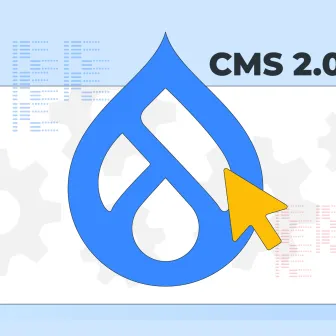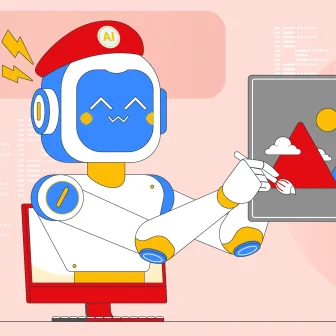All about Drupal development and the people behind.
More and more businesses look for Drupal developers as the market has been skyrocketing for the past decade. Drupal has emerged to be an enterprise-level content management system compared to rivals Wordpress and Joomla.
As Drupal development involves various segments, there is always a scope of confusion regarding skill sets and responsibilities. We, at OpenSense Labs, comprise of Drupal Developers, Architects, Themers and Back-end experts. All of us lay the foundation for any project we pursue.
Let’s dive in and understand the distinct categories and their skills which make Drupal development a success.

The entire development process in Drupal comprises of various segments which contribute equally to the overall well-being of the website. From laying the foundation of the website to providing it a UX-friendly design, it is collaboration at its peak. Let us decode every single role here:
Drupal Site Builder

Site building is the core Drupal competency which is much needed for the site creation. It includes, getting Drupal up and running, and configuring the options to build a full-fledged functional website.
One of the most rewarding features of site-building is that a Drupal site builder approaches building sites with the only point and click on the admin UI (user interface), without writing a single line of custom code. Site Builders are known to lay the foundation of any Drupal website.
Meaning, they build the taxonomy, content types, image presets, lists with views, layouts, menus, rules and setting up roles and permissions.
By understanding, a completely functional Drupal website is curated with a lot of Drupal core and contributed modules (such as References, Scheduler, and Automatic Nodetitles). A site builder has a sound experience of these core and contributed modules.
They have the skills to play with a combination of modules, along with the limitations which might result in resolving a respective problem or a set of problems. Every module in itself is grounded to some capabilities which the site builders understand. Except for the earlier mentioned, the site builders also have:
- The general understanding of the working of the web, installation of dynamic web applications are the important prerequisites for Drupal site-building. In addition to that, familiarity with HTML, CSS with a code understanding is an aid.
- Can install and setup Drupal manually or by using an application or a service, configure core, add new features and evaluate the contributed modules.
- Capable to test out the configuration changes before deploying or configuring them on a live website.
Drupal Themer

A Drupal themer, also known as a Front-end developer has a seat in between the designer and the developer. They are the specialist in front-end designing and development and are responsible for maintaining the implementation of the client-facing architecture of an application or a website. Along with HTML, CSS expertise, they know:
- Front-end technologies like Javascript, JQuery and AngularJS.
- Basic theming skills like installing themes, creating sub-themes, and tweaking sub-themes with CSS and custom template files. They use some PHP in template files and in Drupal 8, Twig is used for templating.
- They have expertise in the Drupal theme layer. They ought to have the capacity to take a design and transform it into a functional issue like implementing responsive design.
- The expert front-end developers create "glue code" modules or functions in PHP that expose configuration options to site builders.
Drupal Backend Developer
A click on the front-end is of no-use if there is no functionality implementation in the backend. A backend developer writes the code that hooks distinct sections altogether for the proper functioning of an application as a whole.
Also known as the Drupal Module Developer, they are proficient coders who write a lot of code in PHP and other server-side languages. The backend developers in Drupal are fully aware of the basic site building architectures and best practices. In addition to that they are:
- Well versed in creating and executing the new modules. They are also adequately equipped to customize and extend the existing Drupal modules.
- Involved in the advanced side of theme layers, automated tests, consume web services, automated deployment, etc.
- Along with the knowledge of HTML, CSS, JS/JQuery and JavaScript, a clear and in-depth understanding of back-end tools like PHP and MySQL.
- For D8, they know the concepts related to architecture and planning, development of custom modules and D8 performance and security concerns.
Drupal Architect
Drupal architect has an understanding of complete project architecture and they provide the direction to the project path. A lead role in the Drupal development process, a Drupal architect performs backend development, various front-end tasks and theming in the project. Following is the must-have skills for a Drupal architect:
- Strong understanding of front-end and back-end development tools and other web development aspects.
- Well-versed with the optimization of Drupal.
- Highly proficient in languages such as PHP, SQL, JQuery, and CSS.
- Well versed with the implementing tools like Varnish, GeoIP, Commerce, Ubercart, Solr, and CRM integration, to name a few.
Drupal DevOps/Sysadmin Engineer
DevOps is known with a variety of definitions as a culture, trends, perspective, etc. A Drupal DevOps Engineer wields the tasks of both software development and information technology operations. They run the live stack and deploy Drupal websites from the development environment to the live server environment. Additionally, a DevOps Engineer handles performance-related hurdles that might interrupt business operations or cause any sort of harm, such as setting up Varnish, CDN, and Memcache, etc.
Following are the skills of a Drupal Sysadmin that every Drupal ecosystem requires:
- Linux is a mandate for a Drupal DevOps engineer, that includes proficiency in managing the Linux servers, an expert in internals and Linux Kernel working.
- Bash Scripting, Continuous Integration (CI) so as to automate the time-consuming and repetitive tasks in the application development process, like deployment on the server, backups, restores, refreshes of the databases, etc.
- Hands-on in automation technologies such as Chef, Puppet, Ansible, etc. for configuration management and deployment.
- A DevOps Engineer needs to be capable of performing multifaceted roles, such as Site Reliability Engineer (SRE), Build Engineer (BE), System Operations Engineer (SOE), Database Administrators (DBA).
- Solid understanding of Infrastructure as Code (IAC) in order to manage the networks, virtual machines, load balancers, and connection topology in a descriptive model for source code versioning.
Drupal QA Engineer
The profile which imitates as an end-user and has the skills of a developer is a Drupal QA engineer. This profile ensures the quality of product deliveries. They run the manual as well as automated tests to meet quality thresholds.
To ensure quality delivery of projects, a Drupal QA engineer develops corrective action programs as a part of the Quality Assurance process. Following are the must-have skills for a Drupal QA engineer:
- Sound understanding of the product or industry-specific requirements.
- Experience in testing web technologies.
- Well versed with Drupal 7 and higher.
- Strong command in various programming languages, such as HTML, CSS, and JS.
- Ability to document test cases, capture the test result details, setting up an automated test environment, etc.
Drupal Project Manager/Scrum Master
Also known as the Scrum Master who ensures agile practices in the entire term of the project. They manage and run scrum teams, take responsibility for daily progress in the project to meet project delivery timelines. A quality project manager who acts as a central node between the client and the team while ensuring transparency for both ends. Following are the must-have skills of a Drupal project manager:
- Skilled in client servicing domain, plus sufficient technical expertise to regulate the workload of the team.
- Capable to forecast/foretell potential risks and mold the project plan accordingly.
- Well versed with the content strategy, implementation and other existing, emerging technologies in order to integrate it with the Drupal CMS.
- Knowledge of SEO and reporting tools like Google Analytics to check how the content is performing across the web.
Drupal Designer
A Drupal designer accelerates the process of user experience (UX) and user interface (UI ), so as to create the best experience for end-users. They know what the technology stack is capable of, thus delivering to design requirements and win over stakeholders before development kicks off. Following are the must-have skills of a Drupal Designer:
- Knowledge of the capabilities of Twig is imperative for the upcoming Drupal versions.
- Knowledge of HTML, CSS and Javascript.
- A clear understanding of the basics of theme creation and site-building.
Drupal Product Owner
Most of the time, product owners are the clients who have the final sign off of all the project changes. But they can be the people from the drupal development team too. A product owner (PO) comes up with the requirements of a project and has extensive experience in various industrial domains. They work in close coordination with the project managers to prioritize the backlogs. Following are the must-have skills of a Drupal product owner:
- They should be capable of seeing how things integrate and work together to decide the future or usability of the project. A clear vision and commitment of a product owner will set up a strong base for a Drupal project.
- Also known as the organizers of the project, they should have excellent communication skills to deliver their message across the application development teams.
- Excellent reporting and record-keeping capabilities to measure the current state of the project.
- With excellent decision-making skills and the power of managing the business feedback, product owners should be capable enough to drive projects towards its successful completion.
Content Marketer
How to market the content so that it delivers the maximum output is the major concern of a content marketer. They own the complete content publishing process and ensures that the content matches with the latest search engine optimization (SEO) and search engine marketing (SEM) practices. Following are the must-have skills for a content marketer:
- Well versed with the latest Drupal versions.
- Knowledge of administration functions and perform changes that don’t require any coding related upgradations in the project.
So we saw, similar to other web development life cycles, projects developed under the Drupal roof requires a range of roles streamlining the seamless process of building and support of the Drupal website and applications.
Stay tuned for more!
Conclusion
Drupal has brought a major paradigm shift by being a leading content management system for enterprise-level organizations. A successful Drupal website is powered by a list of different roles having substantial knowledge and skills of the platform.
Want to join the Drupal league? There are seemingly unlimited opportunities for a person who is crazy about Drupal. With over 15+ years of experience in the Drupal community, we at OpenSense Labs are the growth-bound team of architects, developers, designers, themers and more.
We love contributing to resolve community hurdles and help escalate the potential of Drupal as an Enterprise Content Management System. Let's speak for your enterprise needs at [email protected]
Or you can connect with us on our social media channels: Facebook, LinkedIn, and Twitter.
Subscribe
Related Blogs
Drupal's Role as an MCP Server: A Practical Guide for Developers

"The MCP provides a universal open standard that allows AI models to access real-world data sources securely without custom…
What’s New in Drupal CMS 2.0: A Complete Overview

"Drupal CMS 2.0 marks a significant change in the construction of Drupal websites, integrating visual site building, AI…
Drupal AI Ecosystem Part 6: ECA Module & Its Integration with AI

Modern Drupal sites demand automation, consistency, and predictable workflows. With Drupal’s ECA module, these capabilities…




